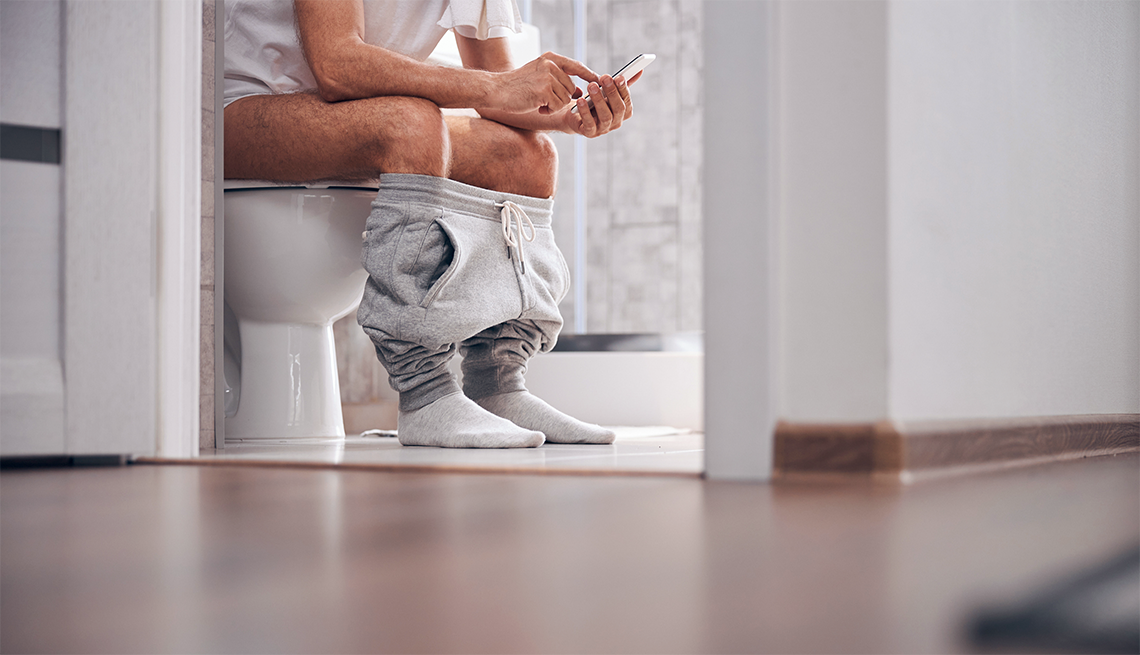The bottom line on hemorrhoids
- Select a language for the TTS:
- UK English Female
- UK English Male
- US English Female
- US English Male
- Australian Female
- Australian Male
- Language selected: (auto detect) - EN

Play all audios:

Do you sit on the toilet scrolling through your phone or reading the newspaper? It may seem like a harmless habit, but it increases your risk of hemorrhoids, says Neha Mathur, M.D., a
gastroenterologist with the Underwood Center for Digestive Disorders at Houston Methodist. “The worst thing nowadays is technology,” she says. “Reading your phone in there, that’s what
everybody does. I tell people, ‘Poop and get off.’” The term “hemorrhoids” technically refers to the blood vessels in your anal canal, which everyone has and are normal, Mathur says. But
when most people talk about hemorrhoids, they typically mean an uncomfortable condition in which those blood vessels are swollen or inflamed. Prolonged toilet time can increase pressure to
the area and cause the internal rectal canal to slip out of position, making hemorrhoids more likely, Mathur explains. One study published in the journal_ __The Lancet__ _found that patients
with hemorrhoids spent more time during defecation and reading on the toilet than a control group. Hemorrhoids are especially common among older adults, partly because anal tissue weakens
with age. About half of adults older than age 50 have the condition, according to the National Institute of Diabetes and Kidney Disease. WHAT CAUSES HEMORRHOIDS? There are two types of
hemorrhoids: internal hemorrhoids, which develop inside the rectum, and external hemorrhoids, which create lumps or bulges around the anus. Both are caused by increased pressure or
irritation to the area, experts say. “The major thing that makes hemorrhoids worse is high pressure, things like lifting heavy weights at the gym or straining while having a bowel movement,”
says Andrew Boxer, M.D., a gastroenterologist at Gastroenterology Associates of New Jersey. Pregnancy and childbirth are common causes of hemorrhoids in people under age 40. In older
adults, prolonged toilet time and straining are often to blame. Chronic constipation or diarrhea makes hemorrhoids more likely. Smoking, being overweight and having high blood pressure are
also linked to a higher risk.